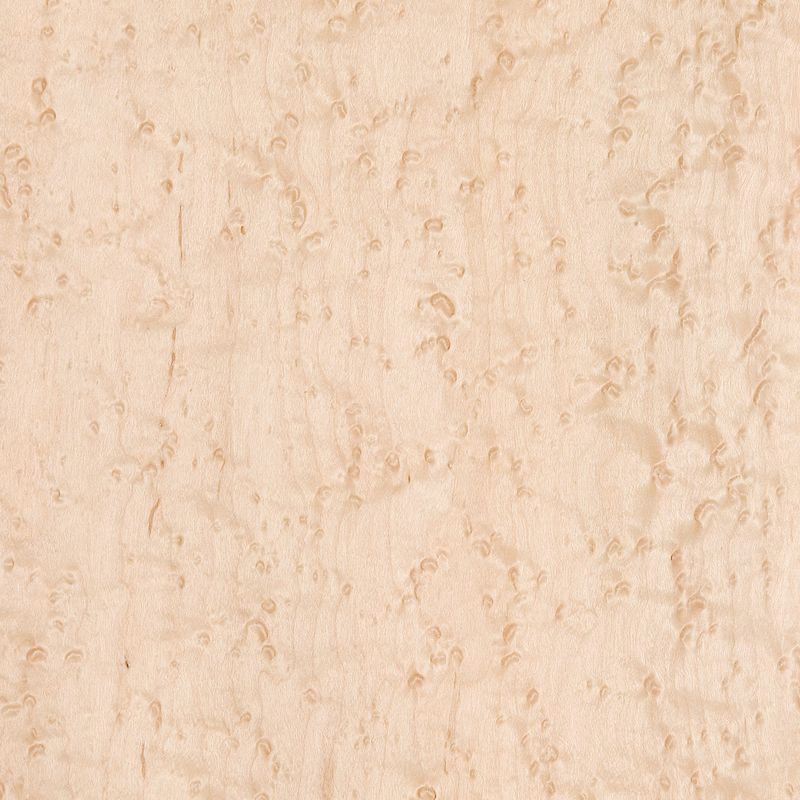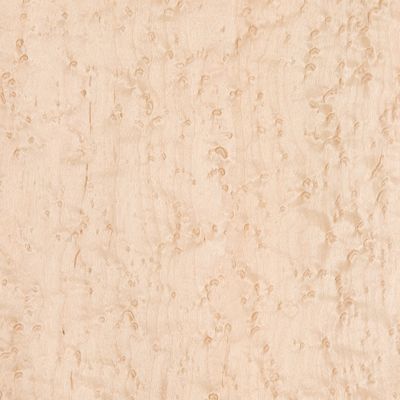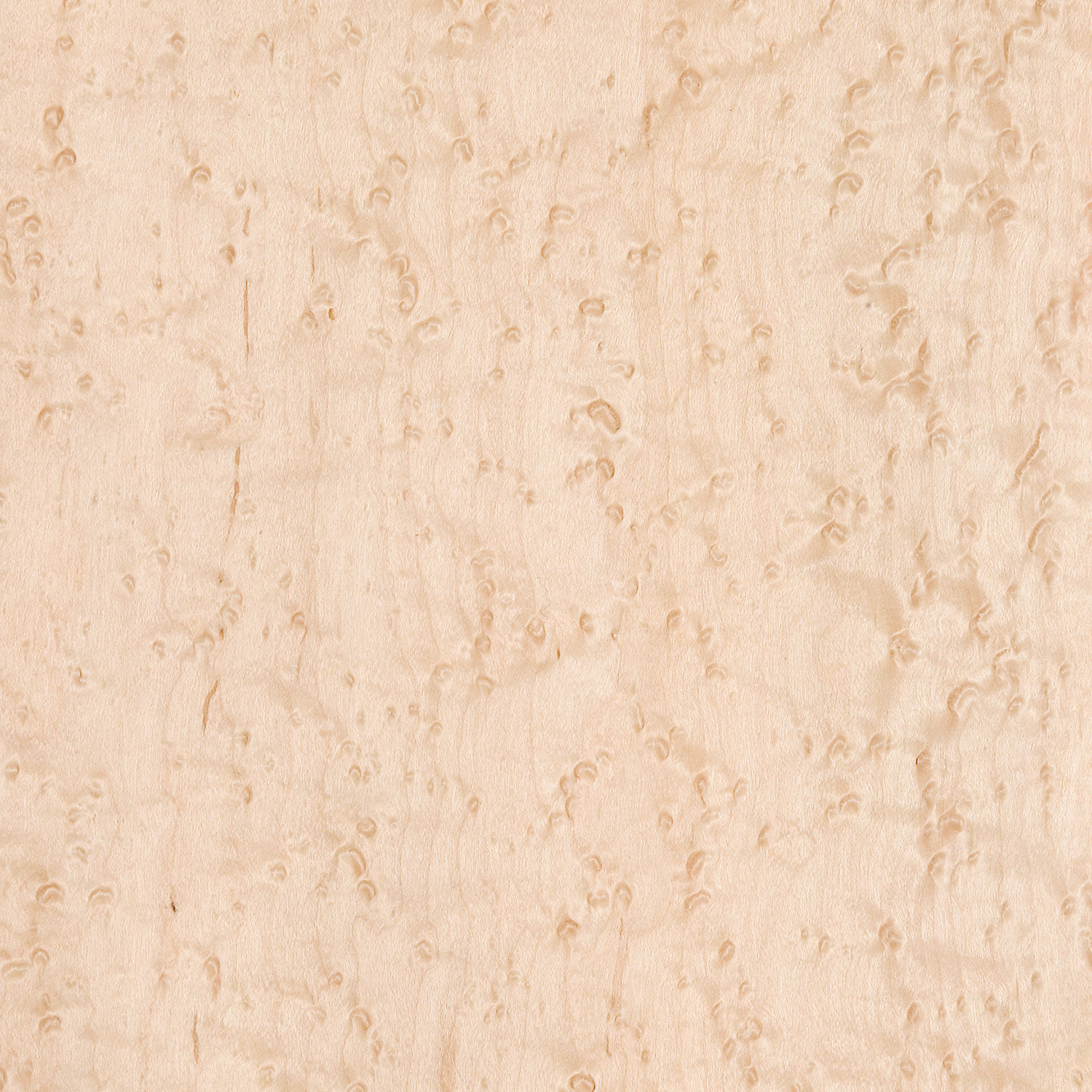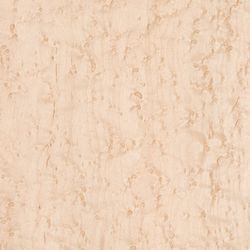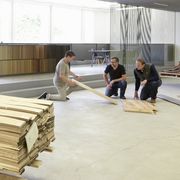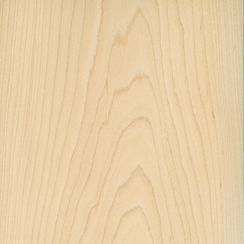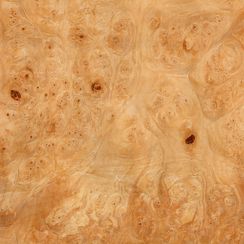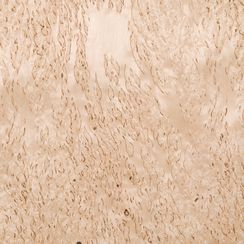Make an appointment at our concept.room for your individual project consulting
Veneer Bird's eye Maple peeled
BackDetailed Description
The tree reaches a height of up to 40 m and a diameter of up to 120 cm. When grown in the stand, the shaft is extremely straight and often knotless up to the crown. The bark is light-coloured and thin.
Tradenames and other names
Bot. Name: Acer saccharum
Tradename De: Vogelaugenahorn geschält, Zuckerahorn geschält
Tradename En: Birdseye Maple peeled
Properties
Raw density: 580 - 690 Kg/m3
Occurrence
The birdseye maple, also named sugar maple is the most important maple species in North America and grows there in the eastern part, from Newfoundland to the Gulf of Mexico.
Characteristic and wood color
The sapwood is light coloured, almost white, while the heartwood is light reddish to reddish brown. It has a beautiful lustre and usually a very decorative grain.
Birdseye burl wood is much sought after for the production of high-quality veneers.
The well-known maple sugar is extracted from the sap of the tree. In late winter the trees are drilled so that the sap runs out. A medium-sized tree produces about 50 litres of sap per year, from which 1 kg of sugar is extracted by thickening it.
